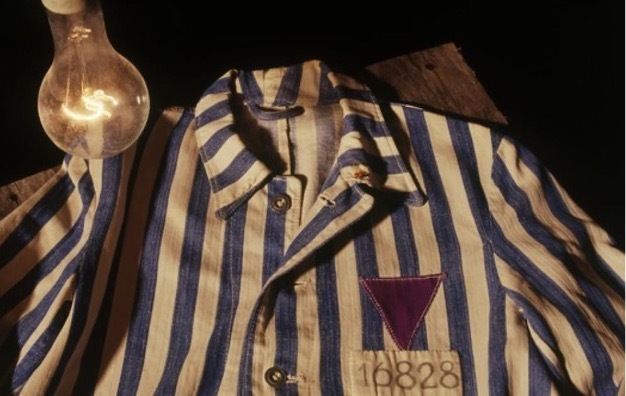 News Staff
News Staff![]() -
January 23, 2024 -
Arts & Culture -
Holocaust Day Jan 27 2024
Jehovah's Witnesses
-
4.5K views -
0 Comments -
0 Likes -
0 Reviews
-
January 23, 2024 -
Arts & Culture -
Holocaust Day Jan 27 2024
Jehovah's Witnesses
-
4.5K views -
0 Comments -
0 Likes -
0 Reviews

DLNews Holocaust:
On International Holocaust Remembrance Day, observed annually on January 27, we solemnly remember the atrocities of the Holocaust. It's a day that resonates deeply with individuals like California resident David Cohen, who, after joining Jehovah's Witnesses in 1991, discovered a personal connection to this dark chapter in history. This year's remembrance, under the theme "Fragility of Freedom," casts a spotlight not only on the six million Jewish victims but also on other groups, including Jehovah’s Witnesses, who faced the brutalities of the Nazi regime.
Jehovah's Witnesses, referred to as "Bibelforscher" (Bible Students) in Nazi Germany, were targeted uniquely for their religious beliefs. As historian Robert Gerwarth notes, they were the only group persecuted solely on this basis. National spokesman for Jehovah’s Witnesses, Jason Hohl, acknowledges the unparalleled horror faced by the Jewish community while also recognizing the profound suffering of other groups, including Jehovah's Witnesses. Out of approximately 35,000 Witnesses in Germany and occupied territories, over two-thirds were arrested, and about one in eight were sent to concentration camps. The death toll among them was staggering, with 1,600 losing their lives, including 548 executed. Hundreds of Witness children, like Hermine Liska, were forcibly removed from their families for "Germanization."
The refusal of Jehovah's Witnesses to conform to Nazism made them conspicuous targets. Historian Christine King explains that their public rejection of Nazism's tenets, rooted in their faith and beliefs, branded them as enemies of the state. They remained politically neutral, in line with Christ's teachings, and resisted saluting Nazi symbols or participating in military service. Their distributed literature, as noted by King on Yad Vashem's website, boldly condemned the evils of the Nazi regime.
In the concentration camps, Jehovah’s Witnesses were identifiable by the purple triangle on their uniforms. They were offered a choice, rare among camp prisoners: freedom in exchange for renouncing their faith and pledging allegiance to Nazism. Remarkably, few accepted. As David Cohen reflects, this unwavering commitment underscores the importance of cherishing and defending one’s beliefs.
Jason Hohl remarks that this day is a stark reminder of the tenuous nature of freedom. The persecution of Jehovah's Witnesses continues in contemporary times, with reports of systematic attacks in countries like Russia. For those interested in learning more about the experiences of Jehovah’s Witnesses during the Nazi era and in current contexts, the official website, jw.org, offers detailed information.
In commemorating the Holocaust, we not only honor the memory of its victims but also remind ourselves of the ongoing struggle against intolerance and the courage it takes to uphold one's faith and freedoms in the face of oppression.

Desert Local News is an invitation-only, members-based publication built on fact-checked, non-biased journalism.
All articles are publicly visible and free to read, but participation is reserved for members—comments and discussion require an invitation to join.
We cover local, state, and world news with clarity and context, free from political agendas, outrage, or misinformation.